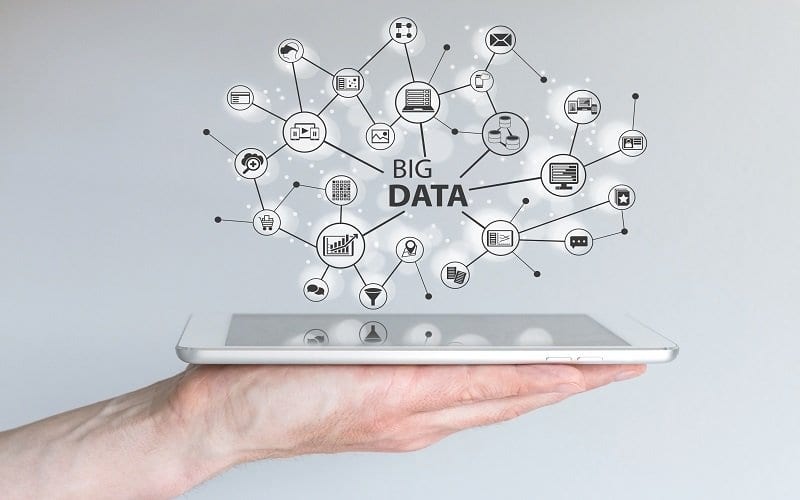If data is a new commodity and artificial intelligence-driven automation feeds on data, can data be labeled a new form of labor? So, why are we giving it free to companies?
Introduction
Data is the foundation of artificial intelligence-driven automation. Our data is becoming a valuable commodity to automation initiatives across nations: its governments, industries, organizations, and academia (NGIOA). Since data and information drive the value of artificial intelligence initiatives, the better the sources of data, the better the automation initiatives and resulting intelligence outcomes.
So, it is quite interesting that most of our machine learning systems today are being built on free publicly available data. What’s more: we are giving free data (our new labor) to artificial intelligence systems that may go on to replace us: our roles, our jobs, our wages, and our very economic security in the coming tomorrow.
Understandably, how people will earn money when jobs succumb to automation is becoming a cause of great concern to concerned citizens, labor organizations, and decision-makers across nations. While there are growing calls for Universal Basic Income, the question that needs to be evaluated is whether, on its own, the government-driven universal basic income has the potential to be a practical and sufficient solution to the complex employment and economic security challenges coming our way.
Perhaps we need more than one source of income to compensate for the loss of jobs and wages.
It seems monetizing our digital data and footprint could be another source of legitimate income for everyone across nations. Moreover, paying for our data will bring more legitimacy and accuracy to the data, increasing the credibility of the information and intelligence outcomes of the automation initiatives.
Acknowledging this emerging reality, Risk Group initiated a much-needed discussion on Automation and The Future of Work with Ekkehard Ernst, an Economist for Macroeconomic Policy at the International Labor Organization based in Switzerland on Risk Roundup.
Disclosure: Risk Group LLC is my company
Risk Group discusses Automation and The Future of Work with Ekkehard Ernst, an Economist for Macroeconomic Policy at the International Labor Organization based in Switzerland.
The Value of Data
Since automation feeds on our data, accessing our digital data and footprint is becoming increasingly crucial for nations. From marketing professionals to businesses, pollsters, and researchers, there is a growing interest in digital data-driven automation. The reason behind that is simple; data helps create competitive advantages and gives them accurate insights to create relevant advertisements, content, products, and services that would appeal to users and consumers. The collected information and intelligence about consumers are valuable because they can improve products and services in a fiercely competitive digital global age.
As seen currently, businesses are already using data to track how their products and services perform. There is also a growing interest in using data to track how people may vote in elections or how the markets will perform on any given day. This is just the beginning.
What is Our Personal Data Worth?
Each one of us has terabytes of data on our digital devices. We also have data in clouds and in transit. All this digital data is becoming very valuable as it has monetary value. As a result, from social media companies to applications providers, there is a growing trend in collecting the digital data of users and consumers all across nations. Businesses harvest billions of dollars from it through advertising. Also, many companies profit ride on the back of it.
Moreover, as the data gets collected, it is sold off to third parties (marketers and advertisers). That brings us to an important question: why do we give control and ownership of our data to businesses who get very rich by selling our data to others?
Should Personal Data Be Sold?
Our personal data consists of private, personally identifiable information like contact details (name, address, telephone, email) and official credentials that prove who we are, such as a birth certificate, driver’s license, passport, social security number. It also includes financial information such as bank accounts, debit and credit cards, investments and insurances, and crypto-wallets, and more. There is also personal history, such as previous addresses, phone numbers, educational records, transcripts, employment records, certifications, and memberships of associations or groups of any kind, such as sports clubs, retail warehouses, air mile programs, political affiliations, and so on. Very few of us would like to sell or share this data with others.
However, there is more to our data: like our interests, hobbies, and preferences. This is the data that will be of interest to advertisers, retailers, and researchers. While each person would command different prices for their digital tracks and footprints, depending on who they are, everyone should be able to make some money by choosing to sell their digital data.
Selling Own Personal Information
Our data has value for others. What that specific value is, depends on the nature of the information, who is buying it, and how. If we can provide quality data and communicate its potential uses well, we can earn perhaps enough money directly from our data to meet our most basic economic needs.
In a digital economy, information is the most reliable and most widely accepted currency – and buying and selling data should become routine practices for the imminent age of automation. However, unfortunately, that is not the case today as there are a select few companies (tech companies, internet, and telecom service providers, developers, and marketing networks) that benefit enormously off our digital data. It brings us to an important question: should not we sell our data directly, make some money for ourselves, and cut out the middleman? However, that would require us to have a personal data marketplace. Do we have a market for personal data?
Personal Data Marketplaces
While personal data marketplaces have been there for stolen data and personally identifiable information (PII), not many have existed for legitimate data. However, we may be getting closer to making some money by selling our data (not personally identifiable information) for marketing and research purposes. That brings us to an important question: how much is our data worth, without any Personally Identifiable Information? It’s the anonymized patterns across different demographics and other data characteristics that generate interest from companies interested in purchasing personal data for insight, research, development, and marketing.
Businesses are already approaching individuals who want to share their data. Efforts are underway to allow individuals to sell their data directly to companies and advertisers in exchange for a free personality profile. Many companies offer services to back up social media accounts for subscribers, and they then take that aggregated data to sell it.
Personal Data as A Unit of Exchange
While selling data as an option for private individuals was floated as an idea as far back as the 1980s, with the evolution of digital technology, the concept of personal information as a unit of exchange is slowly taking off.
As we see, most of the social media sites and applications are free for consumers in a way. However, the consumers pay for the websites and applications by giving them digital data for open access and services. The time is now to begin a discussion on what is the real value of personal data!
Determining an accurate average value for personal data for everyone across nations would demand extensive research. It seems that depending on the nature of an individual’s digital data, on average, personal data is worth anywhere from a few hundred dollars to a few thousand dollars per year. When jobs become scarce, every dollar will count. The question is: are we ready to take control of our lives? Are we prepared to treat our data as a commodity and as a form of labor?
What Next?
In an age of artificial intelligence, data, like labor, is a resource that is very hard to particularize. The time is now to begin defining and designing a system that would put a value on reliable personal data. The time is now to come up with a tool that will allow each one of us to keep control of our own data. Selling our data to the highest bidder should be a viable option for everyone across nations who are looking to take more control of their lives in the coming years – preparing to make a living as jobs begin to disappear.
This is just one potential solution. Let us start a discussion on what else can be done to prepare for the coming tomorrow.
NEVER MISS ANY OF DR. PANDYA’S POSTS
Just join here for a weekly update





 Securing India’s National ID Database
Securing India’s National ID Database